For a lot of travelers, especially those who haven’t traveled much, it’s always a valid question about whether people speak English. If you’re wondering if people speak English in Turkey, the answer is yes and no – it depends on where you go in Turkey.
In some populated areas, such as Istanbul, Ankara, and Izmir, English is a widely used second language among the population. In other areas such as rural parts of the Central Anatolia region, English may be less common due to the fact that fewer people have had access to resources for learning English or interacting with English speakers on a regular basis.
Generally speaking, you’ll find that the younger generations in Turkey are more likely to speak English than those from the older generation. Certain industries such as hospitality and tourism also tend to have more English speakers. However, the overall proficiency of English in the country is low.
Tourists should not expect everyone they meet in Turkey to understand or speak English. Even though some people may be able to answer simple questions about tourist attractions, they may not be comfortable having a full conversation in English.
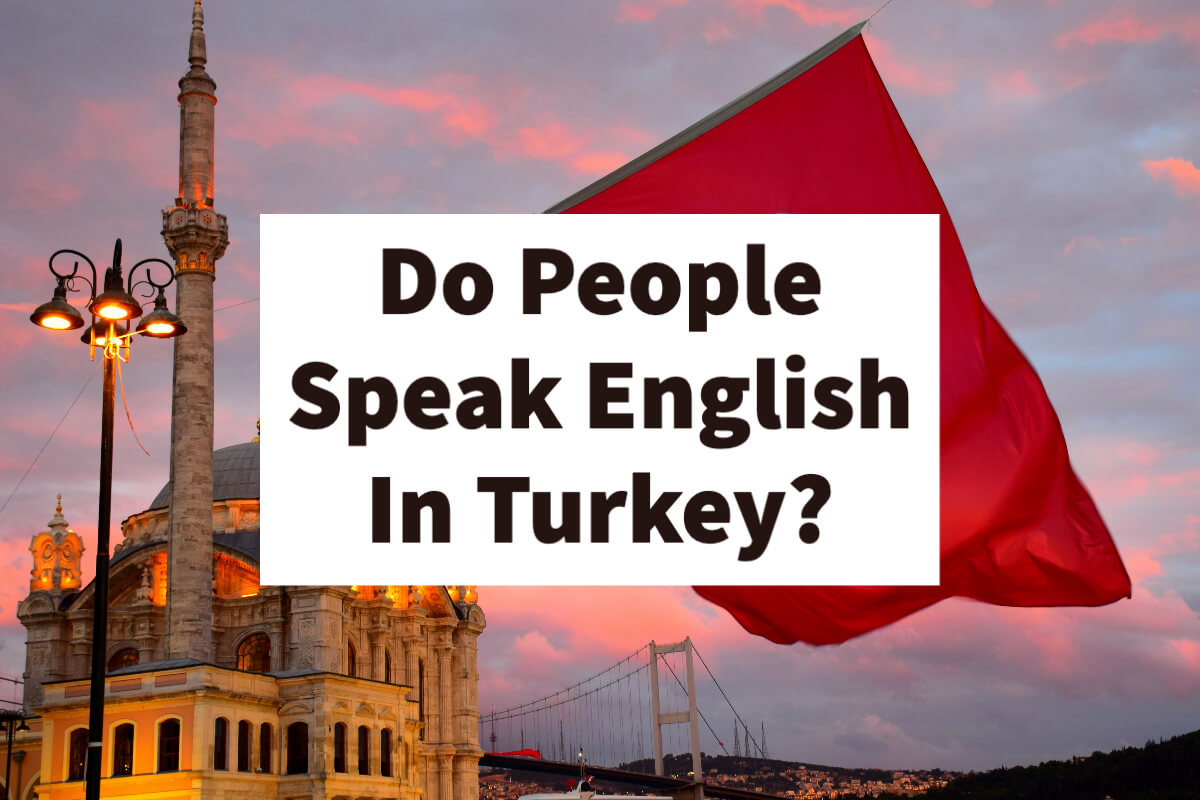
How Much English Do People In Turkey Speak?
Though Turkey is a country that is surrounded by many English-as-second-language countries, proficiency in English in Turkey is actually quite low. Studies have found that only 15 to 20 percent of the population have a basic level of English.
According to EF’s EPI (English Proficiency Index), Turkey ranks #66 out of 111 countries and has a low rating. When compared to the other 34 European countries, Turkey ranks #33 out of 34, which is quite disheartening and hard to believe.
But do those numbers actually represent what the English level is like in Turkey? Sadly, from our experience, yes. Besides the touristic areas in Istanbul and Cappadocia, we had to use Google Translate for most of our communication with Turkish citizens.
Even in restaurants, it is not uncommon for no one except one or two members of staff to speak English. The accommodations were a bit better, and we found that most people that work in the hospitality industry and were interacting with tourists daily spoke great English.
English Education in Turkey
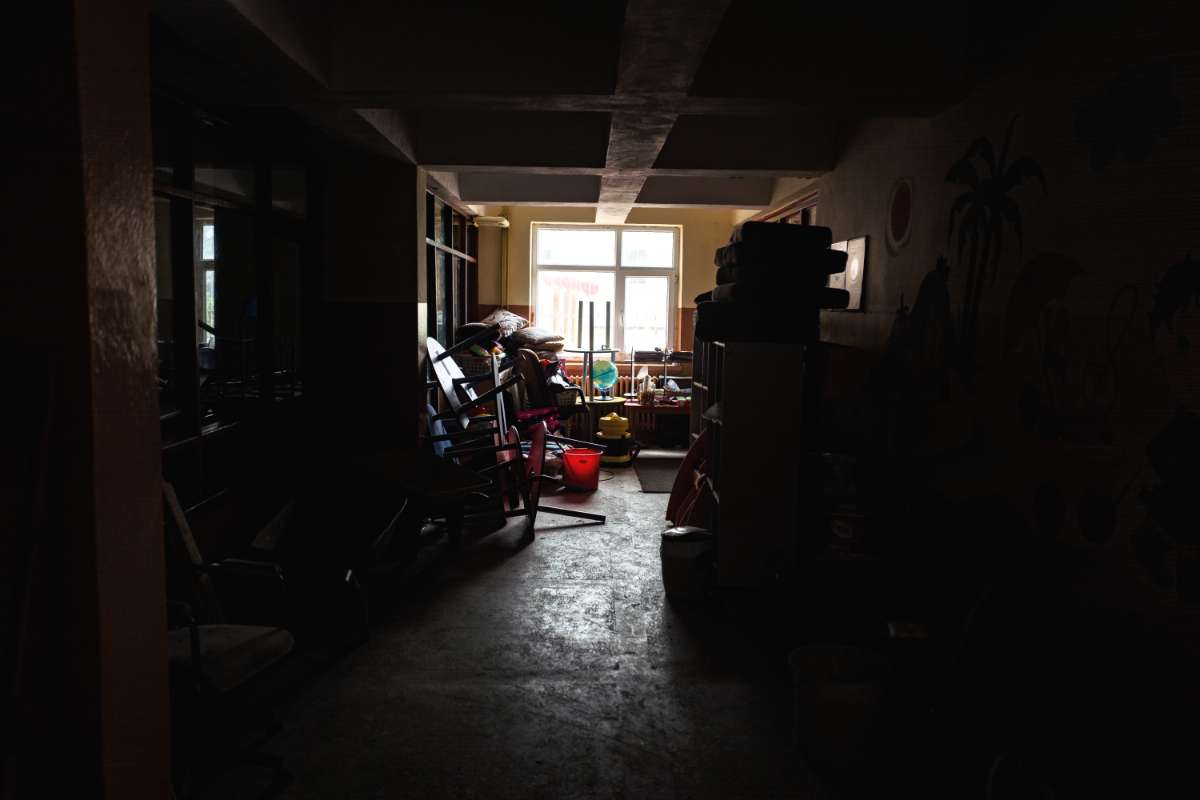
Though the English proficiency level of the population in Turkey is low, the education system is actively trying to push more English language learning.
English is taught as a foreign language in school starting in 2nd grade all the way until the end of high school. High school graduates then have the option to continue studying English Literature in university.
The Turkish government has placed more importance on teaching English in schools and universities in recent years by hiring better teachers and giving them the resources they need. As Turkey becomes more globalized, there is a growing number of international companies based in Turkish. This has increased the demand for English-proficient locals, leading to more language schools and online resources for improving language skills.
Matter of fact, the English proficiency level in Turkey is increasing every year, and it is expected that the younger generations will be a lot better in English than their parents.
Visitors should recognize that English is not easy for Turkish citizens to learn, because it’s a European language and follows Germanic grammar rules, where as Turkish follows arabic language grammar rules. While you may find that Turkish people can know a lot of words in English, their grammar may not be perfect. In Turkey, they also don’t use the latin alphabet, so Turks need to learn to read a new style of alphabet as well.
Can Tourists and Expats Get By With Just English In Turkey?
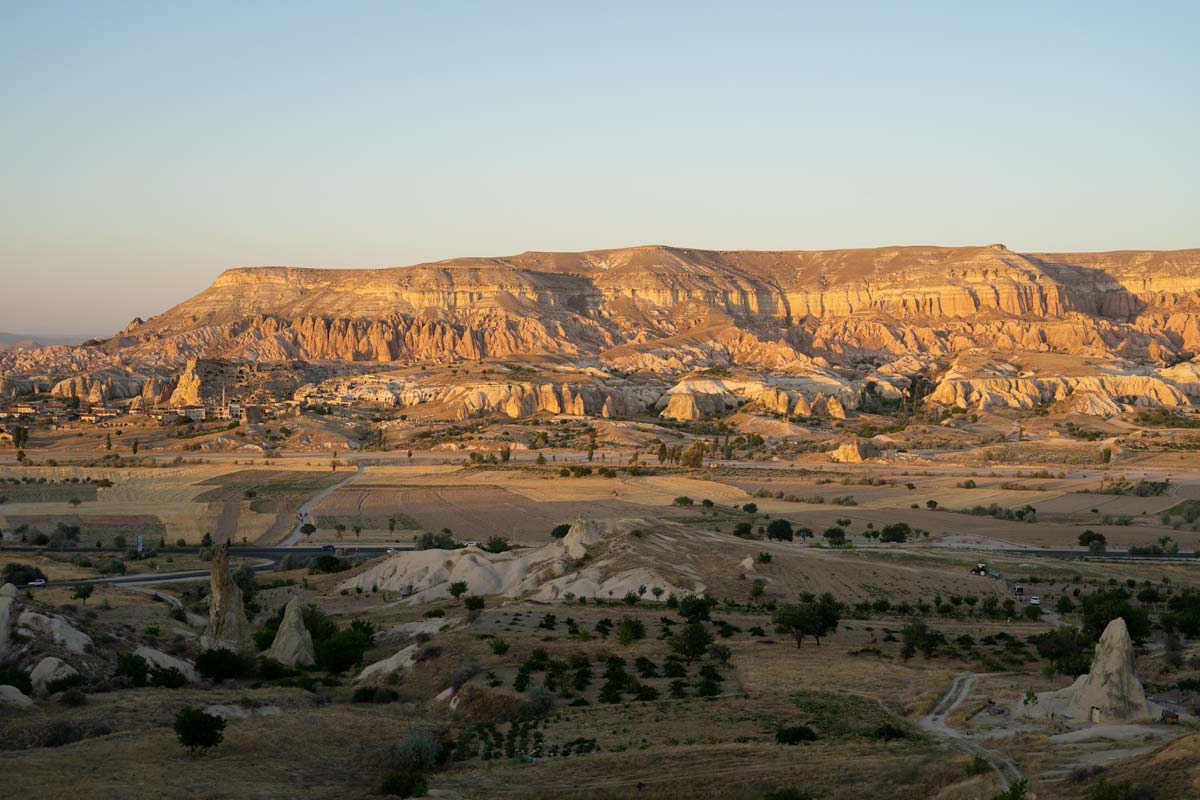
If you are traveling to Turkey, you might wonder whether you need to learn a little bit of Turkish to get by or if are you just fine with English. The answer is that you can definitely get by with just English in the main touristic areas.
Most people working in the tourism industry, especially those working with international tourists, will have a basic to good level of English. If you are visiting Istanbul, Cappadocia, Antalya, Izmir, Ephesus, or Pamukkale, it is highly likely that most people you interact with at hotels, restaurants, shops and tour sites will speak English.
In the more rural areas, it is a different story. You are likely to find fewer people speaking English, and if you do not have a basic level of Turkish, communication can be quite difficult.
That is why we highly recommend you to get a sim card in Turkey so you can use Google Translate with the locals that do not speak English. You can also pick up a few basic phrases in Turkish to help you get around, but Turkish is quite a difficult language to learn.
So What language Do They Speak in Turkey?
The official language of Turkey is Turkish, with the second most spoken language being Kurdish, which is spoken by 6% of the population.
The third most popular language is North Mesopotamian Arabic, which has a few similar words in Turkish and also uses an arabic alphabet, but is very different from Turkish.
The main dialects are the West Anatolian dialect, the East Anatolian dialect, and the North East Anatolian dialect. The east and southeast of Turkey has a Kurdish dialect and more residents speaking Kurdish (also known as Kurmanji or zaza) or a combination of Turkish and Kurdish.
Some similar languages to Turkish are Azerbaijani, Kazakh, Kyrgyz, Turkmen, Gagauz, and Uzbek.
While the mother tongue is Turkish, Turkey’s position on the border of Europe and Asia and its long history of being a trade route on the Silk Road during the Ottoman Empire, as well as being a welcoming hub for refugees from the Middle East, means it’s a melting pot of different ethnic languages and dialects.
Do People Speak English In Istanbul?
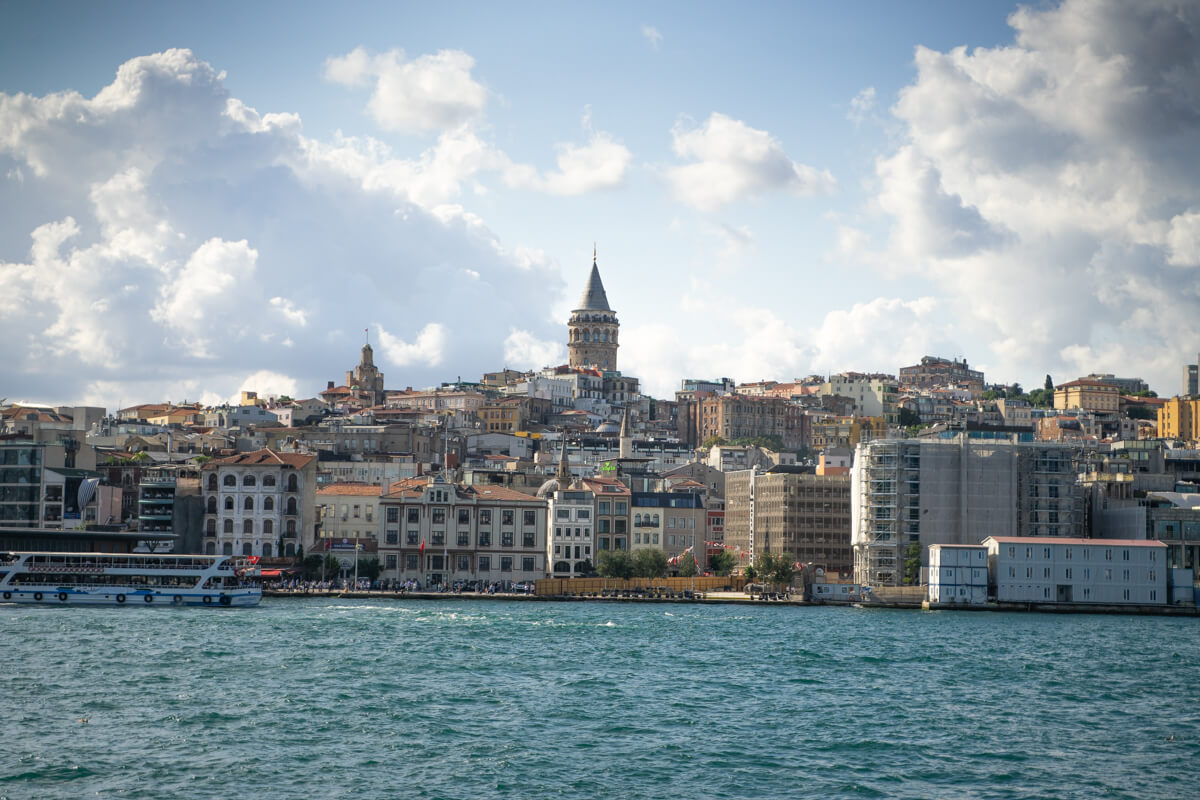
The primary language spoken in Istanbul is Turkish. However, Istanbul is one of the cities in Turkey with the highest number of English speakers, and it is also the most diverse city, so it is very likely that you will be able to communicate in English but you will also meet other nationalities too.
If you are staying in touristic areas such as Sultanahmet and Taksim, you’ll find that almost all of the locals you interact with will speak English, and many signs and menus are written in both Turkish and English.
In other areas such as Kadıköy, Beşiktaş and Balat, it is also quite common to find people who can communicate in English. Unfortunately, if you decide to go to one of the more local restaurants in Istanbul, you might find that there aren’t that many English speakers.
Istanbul has the highest population of Armenian speakers, with 50,000 of the 60,000 Armenians refugees residing in the city, so you may find some people have learned to speak the Armenian language in Istanbul too.
Overall, as long as you stay in the tourist areas in Istanbul, you should have no problem getting around the city.
Places In Turkey Where English Is More Widely Spoken
Istanbul
Istanbul is one of the most popular tourist destinations in Turkey and a busy transportation hub for international travelers. If you are looking for a place in Turkey where the most number of people speak English, you have to go to Istanbul.
Many of the locals in the tourist areas, such as Taksim Square, Sultanahmet, and the Grand Bazaar, speak English, as well as many of the hotel and restaurant staff. Additionally, Istanbul is home to many international schools and universities, so there is a large population of young people who are proficient in English.
Antalya
Antalya is a coastal city located on the southwest coast of Turkey and is known for its beautiful beaches and historic Old Town. Its tropical Mediterranean climate attracts travelers from around the world, hence English is very much needed in Antalya. Along with its large expat community, many of the locals in Antalya have started to speak at least basic English.
Bodrum
Bodrum is a popular resort town located on the Aegean coast of Turkey. It is a favorite among tourists and is known for its lively nightlife and beautiful beaches. English is widely spoken in Bodrum, especially in the tourist areas, and many of the locals in the hospitality industry speak the language.
Cappadocia
Cappadocia is a stunning area in central Turkey known for its unique fairy chimneys, epic hot air balloons, and exotic cave dwellings. It is a popular destination for tourists, and the locals in Cappadocia are used to dealing with English-speaking visitors. Therefore, you will find that most people in Cappadocia are able to communicate with you in English, especially in Goreme, the historic center of the region.
Izmir
Izmir is a coastal city located on the Aegean coast of Turkey and is known for its rich history and beautiful beaches. It is home to several renowned universities, and as a result, there is a large population of young people who are proficient in English. Additionally, many of the locals in the tourist areas speak English.
What Are Some Basic Phrases In Turkish For Tourists?
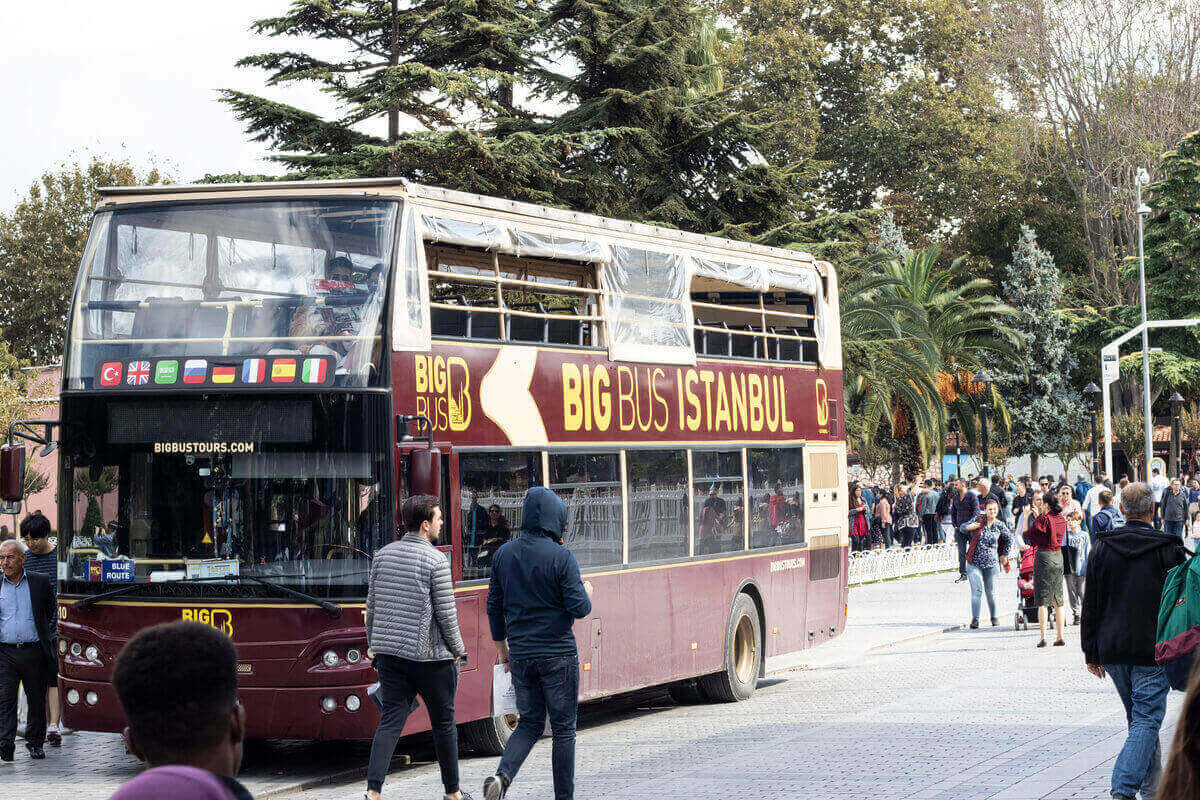
If you are traveling in Turkey, you might want to pick up a few Turkish phrases. Though it is likely that you’ll run into someone that will speak English, learning the local language is a great way to immerse yourself in the culture and connect with the locals on a deeper level. Locals love it when tourists make an effort to learn the Turkish language!
Here are a few basic phrases in Turkish that you will find useful as a tourist:
- Teşekkür ederim (Teh-sheik-kewr eh-deh-reem) – Thank You (formal)
- Teşekkürler (Teh-sheik-kewr-lehr) – Thanks (informal)
- Merhaba (Mehr-hah-bah) – Hello
- Ne kadar? (Neh kah-dahr?) – How much?
- Lutfen (Lewt–fehn) – Please
- Pardon (Pahr-dohn) – Sorry
- Çay (Chai) – Tea
- Su (Soo) – Water
- Iyi (Ee-ee) – Good
- Fena (Feh-nah) – Bad
- Evet (Eh-vet) – Yes
- Hayır (Hah–yuhr) – No
- Tuvalet nerede (Two-vah-let Neh-reh-deh) – Where is the toilet?
Frequently Asked Questions
What Are the Most Common Languages in Turkey?
The most common language in Turkey is Turkish, followed by Kurdish, then the minority languages of Arabic and Zazaki.
Can You Live In Turkey Without Speaking Turkish?
Yes, it is totally possible to live in Turkey without speaking Turkish, as long as you are in a touristy city such as Istanbul, Izmir, or Antalya. Live outside the main tourist destinations in Turkey and you might need to know a little bit of Turkish to communicate with the locals!
So, Is English Spoken In Turkey?
If you have made it this far down, you’ll know that yes, English is spoken in Turkey, but usually in the places that attract lots of tourism.
The English proficiency level of the Turkish people is low, but efforts are made to increase it every day. In a few years, it won’t be surprising if you can travel around Turkey without speaking any Turkish at all!

Turkey is a beautiful country. How much of Turkey is in Europe/ Asia? I would love to visit your great country. My finances are rather low.
Hi Liberato, only about 3% of Turkey is in Europe, the rest is in Asia. The border between the two continents is in Istanbul over the Bosphorus Strait. Turkey can be a very affordable country to visit. We have a guide on budgeting for Turkey here: https://theturkeytraveler.com/is-turkey-expensive/